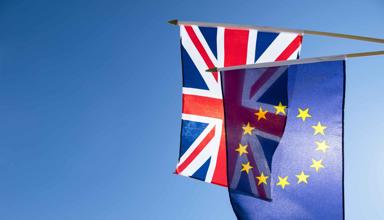“Because every voice counts” is a phrase you’ll find on the social media channels of the European Economic and Social Committee (EESC).
The EESC is the EU’s civil society institution. It has 329 Members representing businesses, workers and other third sector interests, from farming and the environment to education and human rights. Its role is to ensure the voice of EU civil society is heard at the heart of decision making in Europe.
Pre-Brexit, organisations from across the UK, including Wales, were members of the institution. Post-Brexit, the EESC has established an EU-UK Follow-Up Committee. Its job is to monitor how the terms of the UK-EU relationship affect civil society and maintain links between civil society voices in the EU and the UK.
On 18-19 October the Senedd, along with the WCVA and the Wales Governance Centre, will host a delegation from the EESC’s UK committee as part of its UK tour. They will meet with a range of Welsh organisations and Senedd Members, including the Presiding Officer and Deputy Presiding Officer. Discussions will be held on how UK-EU relations affect the everyday lives of citizens in Wales and the EU.
What will be discussed?
Although it’s almost two years since the UK and EU agreed on how they’d cooperate after Brexit, disputes between the two sides still dominate the headlines. Beneath these high-level tensions, businesses, workers and other civil society organisations continue to work out what it means for them in practice, what the challenges are and what common solutions can be found.
Discussions will focus on issues associated with these questions, including citizens’ rights and the Northern Ireland Protocol, and opportunities to build on post-Brexit cooperation.
The Withdrawal Agreement set the terms for the UK’s withdrawal from the EU. It came into force on 1 February 2020 but has not yet been fully implemented. It includes the Northern Ireland Protocol which set up new arrangements for the UK-EU land border between Northern Ireland and Ireland. It also includes arrangements for the protection of the rights of citizens living in each other’s territories.
More information is available on our dedicated Withdrawal Agreement webpage.
The Trade and Cooperation Agreement (TCA) sets up the post-Brexit UK-EU relationship. It covers cooperation in a number of areas which are the responsibility of the Welsh Government and Senedd, such as fisheries, farming, health and the environment.
More information is available on our dedicated Trade and Cooperation Agreement webpage.
UK-EU relations at the Senedd
Since the start of the Sixth Senedd, UK-EU relations has featured prominently in the work of four Senedd committees as well as being mainstreamed across others. Senedd Members will discuss this work with the EESC delegation.
Legislation, Justice and Constitution Committee
The Committee scrutinises the governance of the UK-EU agreements. It has challenged the Welsh Government to improve the transparency of its role in the agreements and its approach to them, given their “considerable importance and interest” to stakeholders.
Culture, Communication, Welsh Language, International Relations and Sport Committee
This Committee is responsible for scrutinising international relations including the Welsh Government’s strategy for engagement with Europe. The Committee has heard evidence about a reduction in engagement opportunities for Welsh civil society organisations with EU counterparts post-Brexit.
Equalities and Social Justice Committee
The Committee has chosen to monitor the EU Settlement Scheme (EUSS) in Wales and reports regularly to the Senedd. It recently published its first annual report detailing its concerns for European citizens trying to stay in Wales, including Ukrainians fleeing the war.
Economy, Trade and Rural Affairs Committee
The Committee scrutinises international trade agreements, including the UK-EU agreements. It has been considering issues related to the preparedness of Welsh ports for new border arrangements, access to the EU research programme Horizon and the economic implications of non-EU new trading relationships.
Ensuring voices are heard
The EESC UK Committee will produce a report on the implementation of the Withdrawal Agreement using evidence and views gathered during its visits. The report will be shared with EU institutions and published.
Despite their differences, the UK and EU were on the same page when they agreed that civil society input should be a feature of their post-Brexit cooperation.
These discussions, at the heart of Welsh democracy, offer an important chance for those voices to be heard.
Article by Nia Moss and Sara Moran Senedd Research, Welsh Parliament






